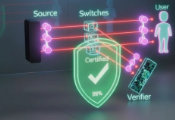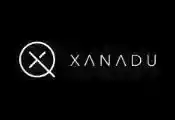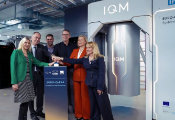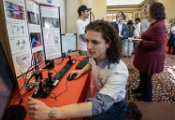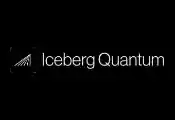Riverlane Expands QEC Capabilities With Key Hires: Abe Asfaw and Guen Prawiroatmodjo
Cambridge, UK, June 17 2025 -- Riverlane, the global leader in quantum error correction (QEC), today announced the appointments of Abe Asfaw, PhD as Head of QEC Enablement and Guen Prawiroatmodjo, PhD as Senior Engineering Manager for Open-source Software. Drawing on experience from Google, IBM, Microsoft, and Rigetti, they will lead new efforts to expand the global QEC talent pool and deliver the open-source software and education infrastructure needed to make fault-tolerant quantum computing a reality.
As the quantum computing field matures, the challenge is not just building better qubits but making QEC scalable and accessible. Meeting this challenge requires more than better hardware. It calls for powerful software, a skilled developer community, and coordination across every layer of the quantum computing stack. That’s why Riverlane is building not just QEC technology (Deltaflow), but also the infrastructure and education programmes that will enable the entire quantum ecosystem to make faster progress.
As the field grows, the demand for QEC expertise is rapidly outpacing supply. The global pool of QEC experts remains exceptionally small. The upcoming QEC25 conference in New Haven is expected to draw fewer than 400 attendees, providing a useful proxy for the current scale of the QEC community. At the same time, history shows that software is likely to generate the lion’s share of value in quantum computing. In classical computing, for example, software contributes over 60 percent of overall industry revenue.
In his new role, Abe will build and lead Riverlane’s global QEC enablement function. He will focus on helping both Deltaflow users and the wider quantum community gain the skills and support needed to adopt and apply quantum error correction. This work includes developing education programmes, building partnerships, and creating support pathways that accelerate learning and encourage the practical use of QEC techniques across the ecosystem.
Guen will lead the development of an open-source software development kit (SDK) designed to help quantum programmers build, test and run fault-tolerant circuits on actual hardware. The SDK will provide essential tools for QEC workflows, including logical circuit generation, simulation, decoding and noise modelling. The first release of the SDK is expected in Q3 2025.
These initiatives are part of a broader strategy to ensure QEC usability keeps pace with hardware advances. Abe and Guen join Riverlane’s growing QEC Community team, led by Liz Durst, former Director of IBM’s Qiskit platform and Riverlane’s VP of QEC Community.
“I am excited to join the talented team at Riverlane that has set its focus on accelerating quantum error correction. This is the key ingredient that will enable the full potential of quantum computers,” said Abraham Asfaw. “Accelerating QEC means delivering highly capable and intuitive hardware and software tools and simultaneously building learning pathways to transition the quantum community toward QEC capability with these tools. My focus is on making it easier for researchers and developers to apply QEC in practice, which will in turn drive the broader quantum computing field forward faster.”
“Today, quantum hardware itself is starting to become capable to running fault-tolerant circuits, and widely available software has not integrated QEC capability yet,” said Guen Prawiroatmodjo. “In the NISQ era, developers were able to run small, noisy quantum algorithms on hardware for the first time, but these often had to be repeated many times to account for noise and errors in the system. With Riverlane’s upcoming SDK, quantum programmers will be able to take their existing NISQ circuits and implement, test and run them in a fault-tolerant way using the latest advances in quantum error correction. Our goal is not only to make it easier to run QEC experiments, but also to upskill the broader quantum community so more people can build, test and run fault-tolerant quantum programs.”
Abe joins Riverlane from Google Quantum AI, where he led education and outreach, shaping global engagement with Google's quantum computing research. This included providing access to Google’s quantum systems, educational resources on quantum error correction, research collaborations, and funding. Before, he served as Global Lead for Quantum Education and Open Science at IBM Quantum, founding initiatives such as the Qiskit Global Summer School, IBM Quantum Challenge, and the Qiskit Textbook. His efforts significantly contributed to IBM's leadership in quantum education and the expansion of the quantum developer community.
Guen brings a wealth of experience from her roles at Rigetti Computing, Microsoft, and MotherDuck. At Rigetti, she contributed to developing one of the first cloud-deployed quantum processors. At Microsoft, she developed core components of the Quantum Development Kit, maintained the Azure Quantum Python SDK, and contributed to the development of Majorana 1. Most recently, at MotherDuck, she was a founding member of the Ecosystems team and maintained open-source software in the data ecosystem.
Riverlane is actively hiring across software, quantum science, enablement, and engineering roles. These positions offer the opportunity to help build the infrastructure, tools, and programmes needed to scale quantum error correction. Many roles, especially on the engineering side, do not require a background in quantum computing. Learn more and apply at www.riverlane.com.
These efforts reflect Riverlane’s mission to make quantum computing useful, sooner. By building the tools, infrastructure, and talent pipeline needed for scalable quantum error correction, Riverlane is helping the entire industry move closer to fault-tolerant quantum systems that can deliver real-world impact.


